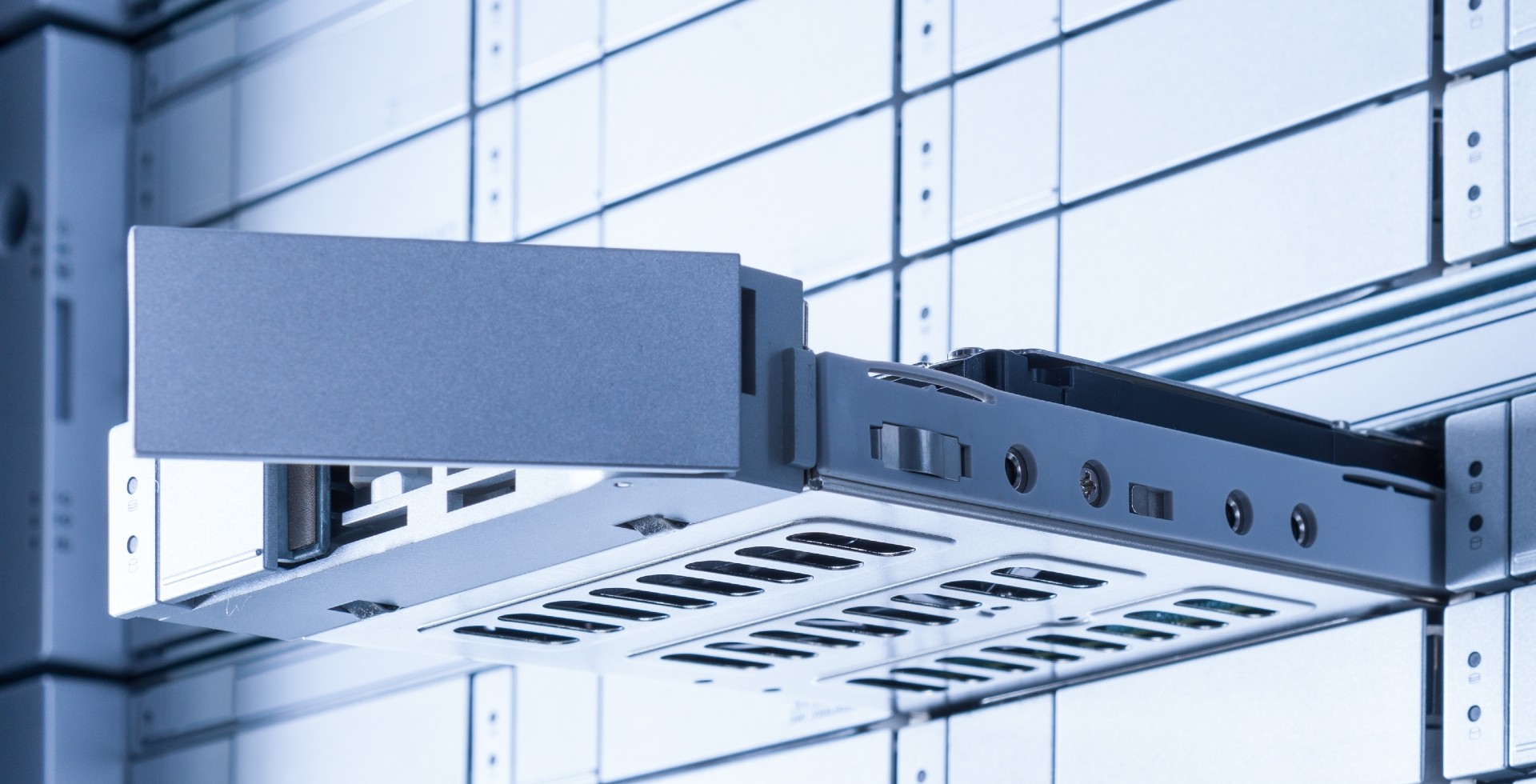
Asset Lifecycle Management (ALM)
Secure, sustainable hardware asset management and IT asset disposition
Iron Mountain has acquired Wisetek
Iron Mountain has successfully acquired Wisetek, a global leader in IT asset disposition (ITAD), IT asset lifecycle management (ALM), and manufacturing services, established in 2007 in Cork, Ireland. This acquisition is a milestone in expanding Iron Mountain Asset Lifecycle Management services. We are excited to continue setting the benchmark for excellence in ITAD, asset lifecycle management, and manufacturing services.
Asset Lifecycle Management (ALM)
Holistic IT Asset Lifecycle Management
Hardware asset management is a strategic, intentional practice – whether it be managing end-user devices or data center equipment. Logistics and storage requirements add complexity to securely managing your IT hardware throughout its lifecycle through end of life.
Iron Mountain Asset Lifecycle Management is uniquely equipped to address these challenges, drawing on over 70 years of expertise in best-in-class data security, logistics, and storage. This extensive experience combined with our state-of-the-art IT asset processing facilities, renowned global remarketing network, and Teraware – our world-class data sanitization platform – make us the industry-leading, end-to-end asset lifecycle management provider.
Data security and sustainability are at the core of everything we do. Our secure chain of custody, serialized certificates of data destruction (COD), and environmental impact reporting support compliance and ESG initiatives.
Providing complete control and visibility of hardware assets, we help you maximize IT asset usage throughout the lifecycle and recover value at end-of-use through remarketing.
Learn MoreOur mission
Our mission is to optimize the lifecycle of your IT assets at each stage to achieve maximum use and return on investment.
ALM Customer Information Center
Find resources and support information for your ALM services
View moreIron Mountain ServiceNow Integration
Iron Mountain ServiceNow Integration
*Gartner Market Guide for IT Asset Disposition; Rob Schafer, Christopher Dixon; November 6, 2024 Gartner does not endorse any vendor, product or service depicted in its research publications, and does not advise technology users to select only those vendors with the highest ratings or other designation. Gartner research publications consist of the opinions of Gartner’s research organization and should not be construed as statements of fact. Gartner disclaims all warranties, expressed or implied, with respect to this research, including any warranties of merchantability or fitness for a particular purpose. Gartner Logo: GARTNER is a registered trademark and service mark of Gartner, Inc. and/or its affiliates in the U.S. and internationally and is used herein with permission. All rights reserved.
Dive deeper into our capabilities:
Hardware asset management for end-user-devices
Services that maximize the usage of end-user devices, including logistics, storage, refurbishment, sanitization, and redeployment.
Learn MoreIT asset disposition (ITAD) for end-user-devices
End-of life services, including data sanitization or physical destruction of data-bearing devices, remarketing, donation, or e-waste recycling.
Learn MoreData center ITAD & decommissioning services
Comprehensive data center end-of-life services including data sanitization, equipment removal, secure logistics, value recovery and e-waste recycling
Learn MoreThe Iron Mountain Advantage
The most secure, sustainable and scalable asset lifecycle management solutions for your corporate end-user devices and data center assets.
Best-in-class data security
Our renowned secure chain of custody extends from our facilities to our fleet of secure trucks delivering industry-leading logistics. We also boast a world-class data sanitization platform that enables secure reuse of IT assets in the circular economy.
Advanced Sustainability
With a focus on circular principles, our services maximize asset usage, promote reuse and minimize CO2 emissions and e-waste. We also deliver environmental impact reporting that highlights your contributions to your organization’s sustainability goals.
Unmatched experience & reach
Processing more than 150 million pounds of e-waste annually and operating in 30+ countries across 6 continents, our consistent global approach delivers reach and scale. We are a partner to some of the world’s largest hyperscalers and enterprises.
Data security and secure chain of custody
Comprehensive data sanitization
Onsite or offsite data destruction
Complete, audit-ready reporting
TerawareTM
Teraware is a world-class data sanitization solution delivering enterprise-grade sanitization for a wide range of use cases, including:
Maximize Value Recovery
*Comparing 1 ton of recycled portable electronic devices to 1 ton of portable electronic devices reused using the EPA WARM Model
Optimize the lifecycle of your IT assets to achieve maximum use and sustainability
We fully embrace the circular economy, helping our customers transition from a traditional linear supply chain model to circular alternatives. When implemented effectively, this shift delivers powerful benefits to your business that include extending the life and usage of your IT hardware and significantly reducing carbon emissions and e-waste
Learn more about our approach to sustainability and the circular economy here
Certifications and standards
We uphold industry standards and are certified by standards-setting bodies through regular audits of our facilities and processes. To get a detailed list of all our accreditations, visit our ALM Certifications & Standards page.








